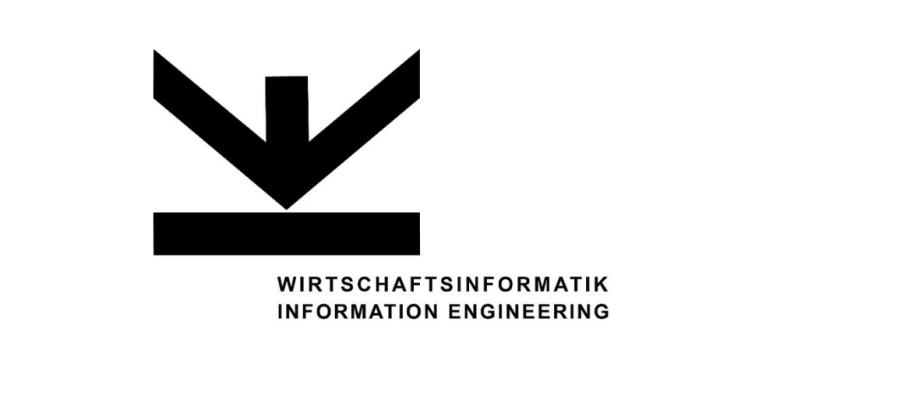Introduction to controlling
Controlling is an essential part of corporate management and accounting. It refers to the planning, management and control of company processes to ensure the achievement of strategic and operational goals. As the interface between management and operational areas, controlling plays an important coordination and analysis role. The role of the controller has changed over time, so that today they act as a business partner in many companies and support decisions regarding the achievement of objectives and the coordination of company divisions.
Definition and importance of controlling
The definition of controlling comprises the systematic collection, processing and analysis of information (data) required for the planning and management of business activities. The tasks of controlling are diverse and include both operational and strategic aspects, such as monitoring target/actual comparisons and identifying deviations in order to initiate targeted measures to optimize processes.
Controlling is an important part of business studies and comprises various sub-areas such as operational controlling, strategic controlling and financial controlling. The basis for successful controlling is data and its analysis, which can come from various sources, e.g. accounting, financial accounting, customer databases, production, etc. By using controlling tools such as key figures, target/actual comparisons, controlling cycles and analyses, controllers can make well-founded decisions and support the company management in controlling corporate processes.
Objectives and functions of controlling
One of the core tasks of controlling is the planning and monitoring of targets derived from the corporate strategy. The objectives are broken down into individual sub-objectives and measures that are tailored to the various company divisions and processes. Target achievement is monitored and controlled by regularly analyzing target/actual data, which enables deviations to be identified at an early stage and countermeasures to be initiated.
Overall, controlling is a complex subject area that plays a central role in the modern economy due to its relevance for the success of companies. In the following sections, the article will deal in detail with the various aspects of controlling and its instruments, areas and future trends in order to provide a comprehensive understanding of the role and functions of controlling in today's business environment.
Do you need support?
Arrange a free consultation with us.

Fundamentals of controlling
Controlling is an essential part of business administration and plays a central role in corporate management. It is used to manage, plan and control company processes in order to ensure that targets are achieved. This section explains the basics of controlling, including the distinction between operational and strategic controlling and the difference between controlling and corporate management.
Planning, control and information
Planning in controlling involves the systematic preparation of decisions based on information from various sources such as accounting, financial accounting, customer databases, field service reports, complaint management, the R&D department, the marketing department and the HR department. This involves setting objectives that are derived from the corporate strategy and defining appropriate measures to achieve these objectives. Planning is important at both an operational and strategic level.
Controlling refers to the monitoring of target achievement and the identification of deviations between target and actual status. Regular target/actual comparisons enable controllers to identify deviations at an early stage and initiate targeted measures to optimize processes and improve target achievement. Control tasks are an integral part of controlling and serve to ensure the effectiveness and efficiency of company processes.
The information function in controlling comprises the systematic collection, processing and analysis of data required for the planning and management of business activities. The information serves as a basis for decisions and makes it possible to make well-founded decisions and support the company management in controlling corporate processes.
Operational and strategic controlling
Operational controlling refers to the short-term planning and management of company processes and is closely linked to management accounting. It is used to coordinate and control operational activities in the various areas of the company in order to achieve the targets set and ensure the efficiency of processes.
Strategic controlling, on the other hand, has a long-term planning horizon and is geared towards managing the overall corporate strategy. It includes the analysis of internal and external factors influencing the company, the formulation of long-term goals and the development of strategies to achieve these goals. Strategic controlling serves to secure the company's long-term success and competitiveness.
Differentiation between controlling and corporate management
While controlling is responsible for the planning, management and control of company processes, corporate management is the responsibility of the management and includes the implementation of strategies and the management of operational activities. Controlling supports company management by providing information, analyses and recommendations in order to make well-founded decisions and ensure the success of the company.
Do you need support?
Arrange a free consultation with us.
Controlling instruments and methods
This section presents various controlling tools and methods that can be used in the company to optimize the planning, management and control of business processes.
Cost and activity accounting
Cost and activity accounting is a central instrument in controlling that is used to record, allocate and analyze costs. It enables the identification of cost drivers and the evaluation of the profitability of processes and projects. Cost and activity accounting consists of various sub-areas, such as cost element accounting, cost center accounting and cost unit accounting, which together provide a comprehensive picture of the company's cost structure.
Budgeting and forecasting
Budgeting refers to the process of planning and allocating financial resources to specific business areas and activities. It is an important tool for managing the company's financial performance. Forecasting, on the other hand, is the creation of forecasts for future developments based on current data and trends. Both methods are closely linked and support company management in making decisions and adapting strategies.
Key figure systems and balanced scorecard
Key figure systems are essential in controlling in order to measure and evaluate the company's performance on the basis of quantifiable variables. They enable the monitoring of target achievement and the comparison of company divisions and activities. The Balanced Scorecard is an extended key performance indicator system that takes into account qualitative aspects such as customer perspective, internal processes and learning and development potential in addition to financial indicators. It provides a holistic picture of the company's performance and supports strategic management.
Risk management and controlling
Risk management and risk controlling are important aspects of controlling that deal with the identification, assessment and management of risks. They help to identify potential threats to the company's success at an early stage and take countermeasures. Risk management and controlling instruments include, for example, risk inventory, risk analysis and risk assessment as well as the implementation of control and monitoring mechanisms.
Project controlling
Project controlling refers to the planning, management and control of projects to ensure their success. It includes the monitoring of time, costs and resources as well as the quality of the project results. Project controlling tools such as milestone trend analysis, earned value analysis or risk management help to monitor project progress and identify problems at an early stage so that appropriate corrective measures can be introduced. Project controlling is an important part of operational controlling and serves to ensure the efficiency and effectiveness of projects.
Overall, the various controlling tools and methods offer the company a wide range of options for optimizing the planning, management and control of company processes. The choice of suitable instruments and methods depends on the specific requirements and objectives of the company. Professional and target-oriented controlling can help to improve company performance and ensure sustainable success.
Do you need support?
Arrange a free consultation with us.
Controlling areas and industries
This section presents various controlling areas and sectors in which controlling plays an important role.
Marketing controlling
Marketing controlling refers to the planning, management and control of marketing activities in order to ensure the achievement of marketing objectives. Various key figures such as ROI (return on investment) or the conversion rate are used to measure and evaluate the effectiveness of marketing measures.
Personnel controlling
Personnel controlling deals with the planning, management and control of personnel processes. Key figures such as staff turnover rates, employee satisfaction and productivity are used to measure and improve staff performance.
Production controlling
Production controlling refers to the planning, management and control of production processes. For example, key figures such as productivity, output or the reject rate are used to measure and improve the efficiency of production.
Logistics controlling
Logistics controlling deals with the planning, management and control of logistics processes, such as the flow of goods or warehousing. Key figures such as lead time or inventory costs are used to measure and improve the efficiency of logistics processes.
Sector-specific controlling (e.g. banks, healthcare, non-profit organizations)
In various sectors, industry-specific aspects play an important role in controlling. In the banking sector, for example, there are specific key figures such as the cost-income ratio or return on equity, while in the healthcare sector the focus is on aspects such as flat rates per case or patient satisfaction. Non-profit organizations also use special controlling methods to achieve their goals.
Overall, controlling can help to improve company performance and ensure sustainable success in various areas and sectors. The choice of suitable controlling methods and instruments depends on the specific requirements and objectives of the respective area or industry.
IT systems and software in controlling
IT systems and software have become increasingly important in controlling in recent years. They support the controlling departments in processing, analyzing and presenting data more effectively and efficiently. This section presents various IT systems and software solutions that can be used in controlling.
Business intelligence (BI) and data analytics
Business intelligence and data analytics refer to technologies and methods for collecting, analyzing and presenting data in order to support decision-making. They enable controlling to collect and analyze large volumes of data from various sources in order to identify trends and correlations. The knowledge gained can be used for the planning, management and control of company processes.
BI systems offer controlling various tools for collecting, structuring and processing data. The systems can also generate user-defined dashboards and reports to visualize the most important data and key figures. The use of BI systems enables controlling to make decisions on the basis of sound data and thus increase the efficiency and effectiveness of the company.
Data analytics, on the other hand, refers to the use of statistical methods and algorithms to gain insights from large volumes of data. Processes such as data mining or machine learning are used for this purpose. The use of data analytics enables controlling to identify correlations and patterns in the data and to create forecasts on this basis.
Controlling software solutions (ERP systems, specialized controlling tools)
ERP systems (Enterprise Resource Planning systems) are software solutions that enable the integrated management and control of company processes. They cover various areas such as finance, human resources, purchasing and sales. ERP systems can also be used in controlling, for example, to ensure efficient data processing and to provide information that is required for the management and control of company processes.
In addition to ERP systems, there are also specialized controlling tools that are tailored to the specific requirements of controlling. These tools make it possible, for example, to create budgets, monitor key figures or carry out target/actual comparisons. The best-known controlling tools include SAP BusinessObjects and IBM Cognos.
The use of IT systems and software solutions in controlling offers numerous advantages, such as higher data quality, better data availability and greater efficiency in data processing. Nevertheless, the systems must be carefully selected and implemented to ensure successful use. Careful planning and intensive employee training are essential to ensure a high level of acceptance and effective use of the systems.
In addition, data security must also be guaranteed to prevent misuse or data loss. Data protection and data security are therefore important aspects that must be taken into account when selecting and implementing IT systems in controlling.
Overall, IT systems and software solutions offer controlling a wide range of options for processing and evaluating data more effectively and efficiently. The choice of suitable systems depends on the specific requirements and objectives of the company. Professional and target-oriented controlling can be supported by the use of IT systems and software solutions in order to increase company performance and ensure sustainable success.
Do you need support?
Arrange a free consultation with us.
Conclusion and summary
Controlling is an important part of corporate management that deals with the planning, management and control of corporate processes. It is a comprehensive concept that comprises various tools and methods to enable effective and efficient corporate management.
A central aspect of controlling is KPI controlling, which is used to measure and evaluate the company's performance. These key figures enable the controlling department to make decisions on the basis of sound data and thus increase the efficiency and effectiveness of the company.
The term controlling covers various areas and sectors in which controlling plays an important role. IT systems and software solutions are also playing an increasingly important role in processing and evaluating data more effectively and efficiently.
Overall, professional and target-oriented controlling can help to improve company performance and ensure sustainable success. Careful selection and implementation of controlling tools and methods as well as IT systems and software solutions is essential.
The term controlling is therefore a comprehensive concept that encompasses various aspects of corporate management and plays an important role in ensuring the company's success.




































